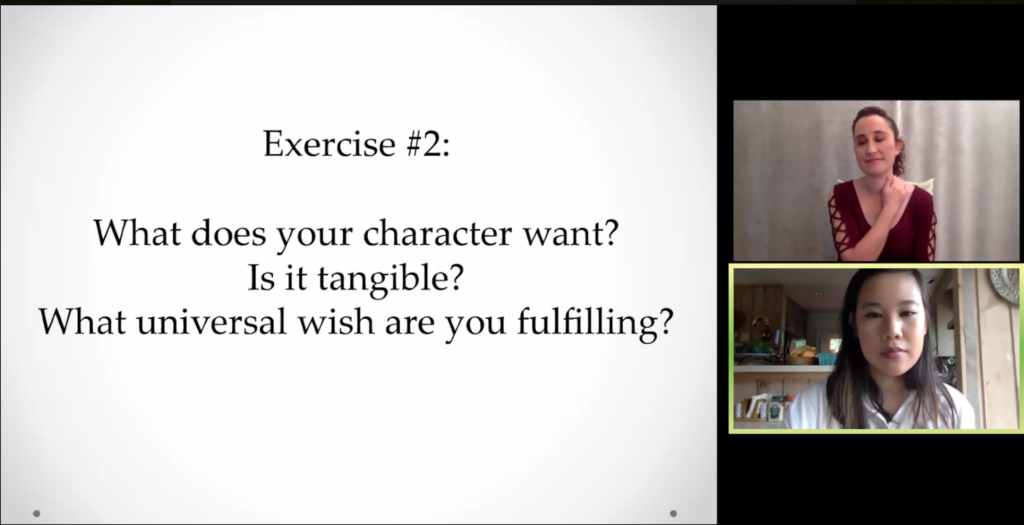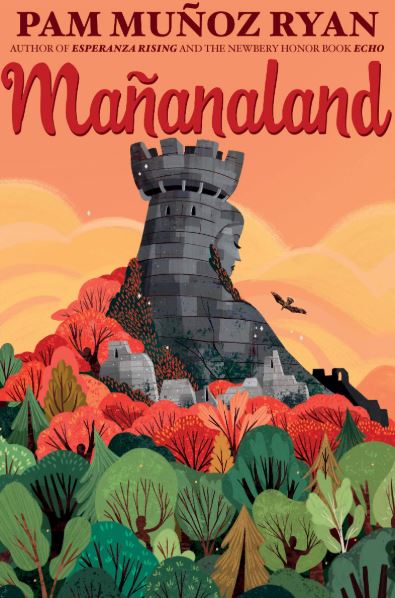craft post by Jen Jobart
When COVID hit, and we found ourselves confined to our homes, for better or for worse (depending on whether we’re introverts or extroverts), SCBWI stepped up. They responded by launching a wonderful series of free digital workshops, presented by some of the most awe-inspiring people in kidlit. One of my favorites was “Straight Through the Heart: How to Make Readers Fall in Love with Your Characters” presented by editor extraordinaire Tiff Liao of Henry Holt Books for Young Readers.

As new writers, we learn to ask what our characters want and what our characters need, and let the story be a tug of war between the two. I’ve never understood that in the way I did when Tiff taught it. I’ll give you just a sampling of what she said in her webinar. I’d encourage you to see her talk if you ever get the opportunity to do so.
I was reading Mañanaland by Pam Muñoz Ryan during the time I saw Tiff’s webinar. I found myself with a perfect match: a character I loved, and a framework about how to create a lovable character. I merged the two and voila! This post.
I’ve been struggling to fully understand the protagonist’s path in my own WIP. My protagonist and Max have a lot in common, so taking a moment to pull apart what made Max’s journey work was helpful in understanding where I need to take my own story. I hope that it’s helpful for you, too.
Tiff challenged us to ask three questions about our protagonist:
- What does your character want?
- Is this want tangible?
- What universal wish does the story fulfill?
In Mañanaland, the protagonist, Maximiliano Córdoba, yearns with every fiber of his being to be reunited with his mother. He has grown up with his loving Papa and Buelo. They fulfill his every want and need, except for Max’s wish to know what happened to his mother, who disappeared when Max was very young.
Tangible want
Finding his mother is a tangible wish. As Tiff mentioned, the wish needs to be tangible so that both the protagonist and the reader know when it’s been achieved. Max will know he’s achieved it when Mama is standing there before him.
Lurking behind Max’s deepest longing is his deepest fear: that his mother abandoned him because she did not love him. One of the reasons he desperately needs to find her is to find out whether that fear is based in truth.
Universal wish
In order for readers to connect with a character, the character’s journey needs to tap into one or more universal wishes.
Middle-grade-aged kids find themselves straddled between childhood and adulthood. They long to remain kids, free of responsibilities, forever. On the other hand, they chomp at the bit, ready to grow up and start their real lives and be more in charge of things. Sometimes, we adults find it hard to know when a kid is ready for information. We don’t want to overwhelm them, but we don’t want to mislead them, either. And as difficult as that balance is for adults, it’s worse for kids. They perceive more than we adults tend to realize. They know when they’re not being told the entire truth.
This is one of the universal wishes that Mañanaland taps into–a kid’s longing to know and understand the things they aren’t being told. Max longs to understand more about his mother and is frustrated that Papa and Buelo won’t tell him anything.
Middle grade is also a time when kids dip their toes outside the realms of their own families and start to establish relationships that have nothing to do with their parents and siblings. When this happens, kids start to compare families. Many times, this is just based on quiet observation and is a surface judgement that doesn’t take into account the entire picture. Still, many kids will in some way, at some time, find their own family lacking and wish there were something they could do to make their family perfect in the way they might perceive other families.
Mañanaland also taps into this second universal wish–a kid’s grappling with how their own family measures up to the other families around them. Max loves Papa and Buelo, but his family just doesn’t feel complete without his mother. He wishes he had a Mama like his friends and classmates.
And that brings us to Tiff’s final question:
What does the protagonist need to feel fulfilled?
Max needs to feel empowered–like he wasn’t just left behind, but instead can understand why his mother had to leave and can empathize with her. At the same time, he must learn to appreciate the family that he does have. And in the end, as with all good stories, this need overpowers Max’s want, and we know Max will be okay when he’s achieved it.
Summing up
These questions are just the first three Tiff asked us to grapple with in her webinar. If you get a chance to see the whole thing sometime, I encourage you to attend!
This exercise unlocked my character for me, and I hope it does the same for you.
Now It’s Your Turn
- Find a book with a main character similar to yours and answer these three questions about the book’s protagonist. What do you find that can give you insight into your own character?
- Then turn to your own protagonist and answer the questions.
- The answers can be a guiding light as you move through your story.
Check out more posts on developing characters:
Jen Jobart writes middle grade fiction and is always sending characters she loves on dangerous adventures. She is an active member of the SCBWI and has studied writing for children through Stanford’s Continuing Studies program. When Jen’s not writing, she’s outside gardening and raising chickens at her home in the San Francisco Bay Area. Find her at www.jenjobart.com.


COMMENTs:
0